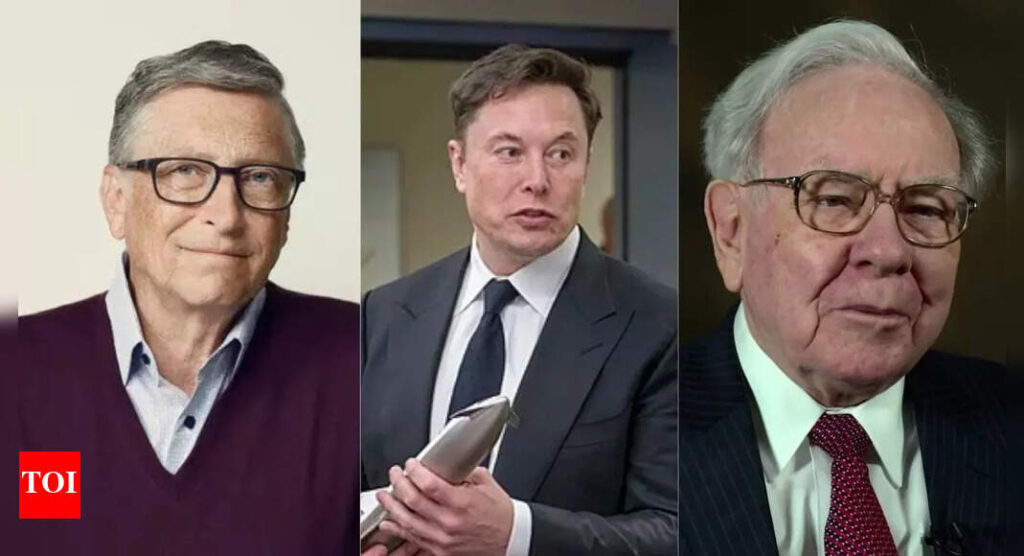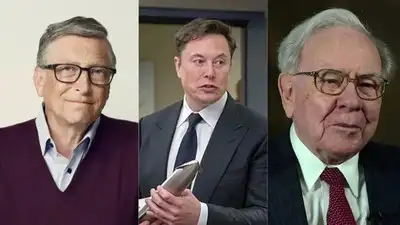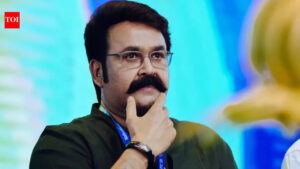Learn how Bill Gates, Elon Musk, Warren Buffett, and other billionaires would ace the toughest interview question: ‘Why should we hire you?’ |

“Why should we hire you?” is one of the widely asked and most challenging questions in any job interview. While it may sound straightforward, many candidates falter, relying on clichés or generic statements that fail to set them apart. Instead of repeating rehearsed lines, top business leaders suggest a different approach: demonstrating unique value, problem-solving ability, and character. Billionaires like Bill Gates, Warren Buffett, Elon Musk, and others offer insights that go beyond qualifications, emphasising curiosity, measurable impact, and real-world experience. Understanding their advice can help candidates craft answers that impress and resonate with hiring managers.
The Bill Gates principle: Communicate your value clearly
Gates emphasizes that this question isn’t about boasting but about showing your value in a way that resonates with the employer. Hiring managers want to see how your skills and mindset align with the company’s mission and challenges. Instead of vague responses like “I work hard,” Gates suggests highlighting strengths the employer seeks.For example, in his early career, Gates often referenced his coding achievements, passion for software, teamwork skills, and ambition. By showcasing accomplishments alongside enthusiasm and a drive to grow, he convinced interviewers of his long-term potential. He advises candidates to connect skills to the company’s needs, demonstrate motivation, and show they can contribute both immediately and over time.
The Jeff Bezos approach: Show measurable impact and customer focus
Jeff Bezos evaluates candidates based on their ability to deliver results and create tangible impact, especially for customers. In his early Amazon days, Bezos famously hired people who had a track record of inventing and executing ideas that created measurable value. For instance, he looks for candidates who can describe projects where their actions led to improvements in efficiency, revenue, or customer experience.A good example would be a software engineer who automated a critical workflow, saving the team hundreds of hours per year, or a marketing professional who redesigned a campaign that boosted customer engagement by 30%. In interviews, Bezos wants candidates to show metrics and outcomes, not just effort. Detailing obstacles faced, creative solutions implemented, and measurable results demonstrates real-world capability and aligns with his philosophy that action and results speak louder than titles or degrees.
The Elon Musk filter: Prove you’ve been in the trenches
Elon Musk looks for candidates with hands-on experience solving extremely challenging problems. He has repeatedly stated that he wants to see people who have “built something difficult from scratch” or tackled problems with real-world constraints. Musk’s interviews often involve deep dives into the details of projects, where he tests the candidate’s knowledge of what actually happened and how they approached complex technical or logistical challenges.For example, a SpaceX engineer might discuss a critical rocket failure they helped troubleshoot—explaining the steps they took to identify the root cause, implement a solution, and prevent future failures. Similarly, a Tesla employee could share how they optimized a manufacturing process under time and cost constraints. Musk wants candidates to provide specific examples, technical details, and measurable outcomes. This proves they are not just theoretically capable but have demonstrated resilience, critical thinking, and execution skills under pressure.
The Warren Buffett mantra: anchor everything in integrity
Warren Buffett prioritizes intelligence, energy, and integrity, but stresses that integrity is non-negotiable. Candidates should showcase ethical decision-making, accountability, and long-term commitment.For example, sharing a time when you chose the ethical path despite pressure or took responsibility for a mistake demonstrates reliability. Buffett invests in people who can be trusted, showing that hiring someone with strong character is as important as technical skill or experience.
The Richard Branson philosophy: let your authentic personality shine
Richard Branson hires based on personality and authenticity, believing skills can be taught, but character is innate. He often asks, “What didn’t you get to include on your CV?” to uncover passions, humor, and individuality. Candidates can stand out by sharing unique hobbies, personal values, or what excites them about the company. This approach demonstrates cultural fit and leaves a memorable impression, showing that you are not only skilled but also a positive addition to the team.







